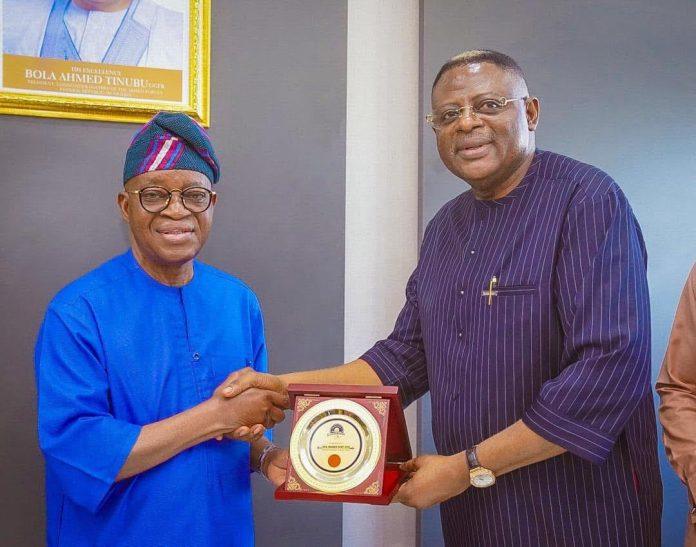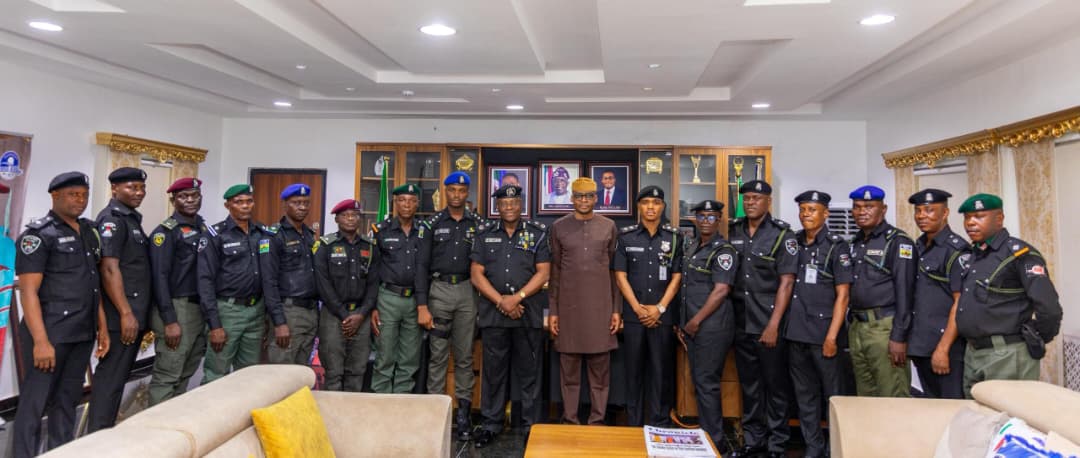Nigeria’s Minister of Marine and Blue Economy, Mr. Gboyega Oyetola has revealed the plan of the Government to accelerate the development of key seaports including the Bakassi deep seaport.
Mr. Oyetola gave the hint at the launch of the National Policy on Marine and Blue Economy in Lagos State, South Western Nigeria, an event that was attended by the governor of Cross River State, Senator Bassey Otu and other stakeholders.
The Minister described the policy as a transformative step towards positioning Nigeria as the leading maritime hub in West and Central Africa.
He said, “this policy signals a new dawn for the sector. Our objective is clear – to catalyse sustainable development by accelerating the completion of critical deep seaports that will drive economic transformation.”
In a remark sequel to the launch of the new strategic framework, Governor Otu expressed profound excitement that the Nigerian Government listed the proposed Bakassi deep seaport, alongside eight others, for Accelerated development.
Governor Otu further described the Nigerian government’s plan as welcomed, timely and visionary, noting that the Bakassi Deep Seaport was a significant highlight of his administration’s economic blueprint.
Otu said, “this project is not only central to the industrial future of Cross River, it is a national asset capable of unlocking regional prosperity and redefining Nigeria’s place in global maritime trade.”
He commended the Nigerian government for the foresight and commitment of ensuring that its national infrastructure goals aligned with the strategic needs of coastal states.
According to Otu, Nigeria loses 79 percent of its cargo shipping activities to neighbouring countries such as Benin Republic, Togo and Ghana, while a paltry 21 percent account for cargoes coming into the country.
He attributed the losses to lack of depth and capacity in existing Nigerian seaports, a situation which hinders the berthing of very large vessels, stating “the implication is that cargoes meant for Nigerian ports are consequently smuggled into the country from the 79 percent of cargoes that find their way into neighbouring countries.
“In effect, one hundred percent of those cargoes were originally meant to be shipped directly into Nigeria. So, the conception of the Bakassi Deep seaport, and of course, when eventually completed, will address the obvious shipping nightmare Nigeria is currently experiencing,” he reiterated.
A Gateway to the Gulf of Guinea
When the former administration envisioned the development of the Bakassi deep seaport, the essence was to make the port a gateway to the Gulf of Guinea linking the north, south-east and south-south corridors.
Thus, with the newly launched national policy on Nigeria’s blue economy, the Cross River State government and relevant stakeholders believe that the deep seaport project would be realised.
Other seaports listed for development on the national framework include Badagry, Olokola, Ondo, Bonny, Burutu, Benin, Ibom and Agge located in Lagos, Rivers, Ondo, Edo, Akwa Ibom and Cross River States.
Hauwa Abu





